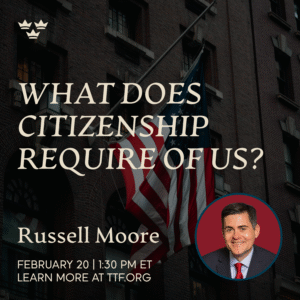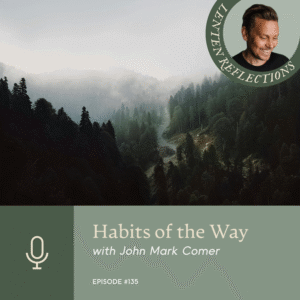From Rush Limbaugh to Tom DeLay, voices that once held sway over the Republican rank and file unloaded on John McCain over the last week, trying to use a conservative electorate in South Carolina to derail the Arizona senator's quest for the Republican nomination. But though McCain failed to persuade many of the old Republican power brokers, he wrapped up the Republican establishment where it counted most, South Carolina… Limbaugh led the way with a verbal blitz, not just against McCain but against his closest rival in South Carolina, former Arkansas governor Mike Huckabee. “I'm here to tell you, if either of these two guys get the nomination, it's going to destroy the Republican Party. It's going to change it forever, be the end of it,” Limbaugh fumed on his radio show Tuesday. It was a line of argument that he kept up all week long.
New York Times columnist David Brooks makes a similar case in his column on Tuesday. After mentioning Limbaugh, Brooks writes:
Conservative voters have not followed their conservative leaders. Conservative voters are much more diverse than the image you'd get from conservative officialdom… While various conservative poobahs threaten to move to Idaho if Huckabee or McCain gets the nomination, the silent majority of conservative voters seem to like these candidates… The fact is, this has been a bad year for the conservative establishment… Regular Republican voters don't seem to mind independent thinking. There's room for moderates as well as orthodox conservatives. Limbaugh, Grover Norquist and James Dobson have influence, but they are not arbiters of conservative doctrine.
I have several thoughts in response:
1. Former Arkansas governor Mike Huckabee, whom Brooks said created a “political earthquake” with his win in Iowa, seems to be sinking quickly, having never broken through and branched out his support beyond his evangelical base. In the aftermath of Huckabee's win in Iowa, Brooks wrote, “He took on Rush Limbaugh, the free market Club for Growth and even President Bush. The old guard threw everything they had at him, and their diminished power is now exposed.” That pronouncement looks less accurate now than it did then — and the demise of Huckabee can be attributed in part, I think, to the concerns raised about him by Limbaugh and others. The “political earthquake” Brooks thought he witnessed two weeks ago turns out, perhaps, to have been more like a political tremor.
2. It's not clear to me that grassroots conservatives are ignoring, at least in large numbers, the counsel of Limbaugh and other “conservative poobahs” when it comes to Senator McCain. Obviously some conservatives and Republicans are voting for him — but certainly not in massive numbers. As the Washington Post wrote on Monday:
McCain has yet to clearly win the Republican vote in any contest this year. In South Carolina… the senator's margin came from independents, who represented one-fifth of the vote. The same pattern occurred in New Hampshire, where McCain and Romney evenly split Republicans and McCain won by a big margin among independents. In Michigan, Romney decisively won Republicans on his way to victory there.
Michael Barone makes a similar point when he writes, “[McCain] hasn't been winning self-identified Republicans by any significant margin even where he has won, in New Hampshire and South Carolina. He has been running behind his 2000 percentages everywhere (though then he was in what was essentially a two-candidate race).”
3. One of the reasons Senator McCain is getting the support he is from conservatives is because no compelling conservative alternative has emerged. Why that has not occurred is a fascinating matter; but whatever the reasons are, no figure in the GOP race has excited or galvanized conservative leaders or the conservative movement. The result is that conservatives, uninspired by any of the choices, are split in their support — with some (often unenthusiastically) lining up behind McCain. And to the extent that Senator McCain is securing the GOP vote, it's because he's emphasizing his conservative bona fides — on national-security issues above all, where he has a compelling case to make. It's worth noting, too, that McCain has already reversed himself on taxes — he is now portraying himself as a Kemp-like tax cutter, even though he opposed the Bush tax cuts earlier this decade — and, at a minimum, has changed his emphasis on immigration, all in an effort to make himself more acceptable to conservatives. We'll see if it's enough.
4. Until this nomination and election plays itself out, it's difficult to draw any definitive conclusions about the state of the conservative movement. It is still a vital force in American politics — but there is an understandable effort underway to take conservative principles, which are enduring, and apply them to issues and circumstances that are different than they were a quarter of a century ago. These two aspects of conservatism — the part characterized by timelessness and a reliance on tradition and the part that is characterized by reform and adaptation — are what people are in the midst of sorting out.
5. I think there is some amount of ignorance when it comes to people who don't often listen to Rush Limbaugh trying to explain him and his influence. For one thing, he doesn't view himself as the commanding general of a political army and his listeners as his troops. He has said, time and again, that his listeners are not “mind-numbed robots” who take order from him or anyone else. Limbaugh is above all a radio-talk-show host — an immensely talented, humorous, and well-informed one, and among the most important voices in the history of radio. He is that before he is anything else — and he has never fashioned himself as a political kingmaker or even the leader of a movement. Obviously he exerts great influence over conservatism and has influenced our understanding of it. Yet he calls things as he sees them, and sometimes his audience doesn't agree with him. He seems wholly untroubled by that. I recall that in 1992, many o
f his listeners were early and enthusiastic supporters of Ross Perot. Limbaugh knew all that — and yet he criticized Perot anyway. It turned out he was right and his listeners were wrong about Perot — but at the time, Limbaugh was said to be out of step with the views of his audience. Yet he continued to make his case — and, eventually, he won over many of his early critics.
6. Having made the mistake of declaring the end of the Clinton Era prior to the New Hampshire primary — perhaps I was the victim of my own wishful thinking — I would caution others against dancing in the end-zone when it comes to declaring the diminishing influence of Limbaugh and the “conservative establishment.” Rush in particular has maintained his talk-radio fastball for 20 years, and his run of success is akin to what Johnny Carson achieved on late-night television. Both men were phenomenally talented and endured through all sorts of different circumstances. They developed a bond with their audience which was deep and enduring and difficult for others to fully grasp. I suspect in the case of Limbaugh, that'll continue for some time to come. And by the way, if he's lost so much of his influence, why in the world does it seem like everyone is writing about Rush these days?
— Peter Wehner, former deputy assistant to the president, is a senior fellow at the Ethics and Public Policy Center.

